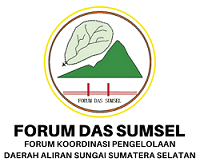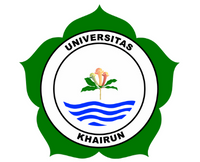Perceptions of Innovation Characteristics Converter Kit Engine and Its Influence on Fishermen's Income in Palembang City
Abstract
The oil-to-gas fuel conversion program is an energy diversification policy carried out by the government to reduce fishing communities' dependence on oil fuel by assisting in the form of converter kit engines. The converter kit engine innovation is believed to be more efficient and effective than the ordinary boat propulsion engines previously used by fishermen. This research aims to identify the socio-economic characteristics of fishermen, analyze fishermen's perceptions of the characteristics of converter kit engine innovation, and analyze the relationship between perceptions and fishermen's income. The method in this research is a survey method. The research subjects consisted of 51 fishermen who received converter kit engines. Data was collected using a questionnaire designed using a Likert scale. The research results showed that the achievement value of fishermen's perception of the characteristics of converter kit engine innovation was 92.03% and was classified as very high. The correlation test results between the variables of fishermen's perceptions of the innovative characteristics of converter kit engines and fishermen's income have a fragile and insignificant relationship with a negative correlation coefficient or in the opposite direction of -0.185.
Keywords
Full Text:
PDFReferences
Abdullah, A. 2016. “Proses adopsi teknologi fermentasi jerami padi sebagai pakan sapi potong pada peternakan rakyat di Kabupaten Bulukumba Sulawesi Selatan”. Sosiohumaniora, Vol. 18 No. 1 hal. 1-8.
Ali, H., Tolinggi, W., dan Saleh, Y. 2018. “Persepsi petani terhadap kinerja penyuluh pertanian lapangan di Desa Talumelito Kecamatan Telaga Biru Kabupaten Gorontalo”. Agrinesia: Jurnal Ilmiah Agribisnis, Vol. 2 No. 2 hal. 111-120.
Baruno, B., Iskandar, B.H., Imron, M., dan Mawardi, W. 2014. “Kinerja LPG pada motor bakar 6, 5 HP sebagai bahan bakar alternatif perahu penangkap ikan”. Marine Fisheries: Journal of Marine Fisheries Technology and Management, Vol. 5 No. 1 hal. 13-25.
Batutah, M.A., dan Muhaimin, A. 2019. “Analisa performa bahan bakar minyak premium dan bahan bakar gas CNG pada mesin toyota limo.Malang: Prosiding Seminar Nasional Teknologi Industri, Lingkungan dan Infrastruktur. 7 hal.
[Depkes] Departemen Kesehatan Republik Indonesia. 2009. “Profil Kesehatan Indonesia”. Jakarta: Departemen Kesehatan Republik Indonesia.
Dharmawan, L., Firmansyah, A., dan Susanto, T. 2019. “Komunikasi inovasi dalam pemanfaatan lahan pekarangan komunitas petani untuk mewujudkan kemandirian pangan di era digital”. Jurnal Komunikasi Pembangunan, Vol. 17 No. 1 hal. 55-68.
Indartono. 2012. “Pemakaian bahan bakar gas menjadi alternatif bagi kendaraan bermotor berbahan bakar premium”. Gema Teknologi, Vol. 17 No. 1 hal. 18-21.
Jayanti, F., dan Arista, N.T. 2018. “Persepsi mahasiswa terhadap pelayanan perpustakaan Universitas Trunojoyo Madura”. Competence: Journal of Management Studies, Vol. 12 No. 2 hal. 205-223.
Kuncoro, A., Ma’muri, S., Wasis, W., dan Wisnugroho, S. 2016. “LPG sebagai energi alternatif untuk bahan bakar dual-fuel mesin diesel kapal nelayan tradisional”. Prosiding Seminar Nasional Sains dan Teknologi 2016. Jakarta: Fakultas Teknik Universitas Muhammadiyah Jakarta. 12 hal.
Kurniaty, I., dan Hermansyah, H. 2016. “Potensi pemanfaatan LPG (Liquefied Petroleum Gas) sebagai bahan bakar bagi pengguna kendaraan bermotor”. Prosiding Seminar Nasional Sains dan Teknologi 2016. Jakarta: Fakultas Teknik Universitas Muhammadiyah Jakarta. 5 hal.
Lengkong, S.A.R.A., dan Sutjahjo, D.H. 2013. “Pengaruh penggunaan bahan bakar LPG terhadap efisiensi thermal, ekonomisasi, dan konsumsi bahan bakar mobil toyota kijang 5K. Jurnal Teknik Mesin, Vol. 1, No. 3 hal. 101-105.
Maryani, N.D., Suparta, N., dan Setiawan, IG., A.P. 2014. “Adopsi inovasi PTT pada Sekolah Lapang Pengelolaan Tanaman Terpadu (SL-PTT) Padi di Kecamatan Sukawati Kabupaten Gianyar”. Jurnal Manajemen Agribisnis, Vol. 2 No.2 hal. 84-102.
Muchangi, C.T. 2016. “Influence of farmer’s characteristics, agricultural extension and technology specific factors on adoption of organic farming technologies in Embu West Sub County, Embu, Kenya. Kenya: Thesis University of Nairobi.
Rogers, E.M. 1995. “Diffusion of innovations”. New York: Simon & Schuster, Inc.
Sugiyono. 2015. Metode penelitian pendidikan (Pendekatan kuantitatif, kualitatif, dan R&D). Bandung: CV. Alfabeta.
Sukirno, S. 2006. “Ekonomi pembangunan: Proses, masalah dan dasar kebijakan”. Jakarta: Kencana Prenada Media Group.
Sulistyono, S. 2014. “Program diversifikasi energi melalui konversi bbm ke bbg dan kendala perkembangannya. Swara Patra: Majalah Ilmiah PPSDM Migas, Vol. 4 hal. 2 hal. 27-33.
Susanti, V., Hartanto, A., Subekti, R.A., dan Saputra, H. M. 2011. Kebijakan Nasional Program Konversi dari BBM ke BBG untuk Kendaraan. Jakarta: LIPI Press.
Tiarmauli, S. 2018. “Proses adopsi terhadap inovasi pakan buatan di Desa Koto Mesjid Kecamatan XIII Koto Kampar Kabupaten Kampar Provinsi Riau”. Jurnal Online Mahasiswa (JOM) bidang Perikanan Ilmu Kelautan, Vol. 5 No. 2 hal. 1-13.
DOI: https://doi.org/10.32502/jgsa.v4i1.7563
Refbacks
- There are currently no refbacks.
Indexed by:
Journal of Global Sustainable Agriculture
Diterbitkan oleh Fakultas Pertanian, Universitas Muhammadiyah Palembang
Contact Person:
Rika Puspita Sari, M.Si (+62 813-7490-0341)
Klinik Publikasi Pertanian
Faculty of Agriculture, Universitas Muhamamdiyah Palembang
JL. Jend. A. Yani 13 Ulu Palembang, South Sumatra, Indonesia
Tel. (+62)711-511731; Email: kppfpump@gmail.com; Website: https://jurnal.um-palembang.ac.id/JGSA

This work is licensed under a Creative Commons Attribution 4.0 International License.







1.png)

13.png)





